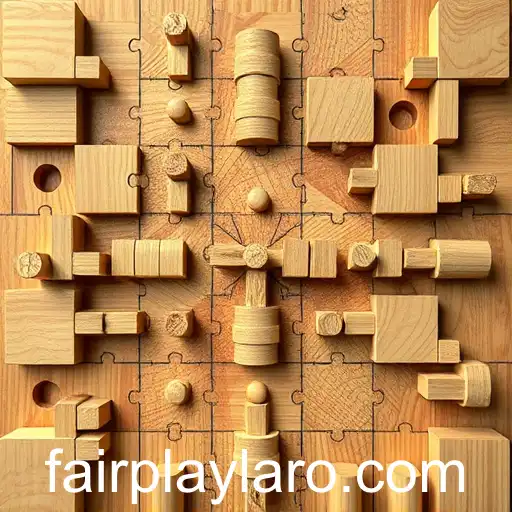Puzzle games have long held a special place in the landscape of interactive entertainment, celebrated for their ability to engage the mind and challenge players with intricate problems to solve. The hallmark of a great puzzle game is not only its complexity or the skill required but also the element of 'fairplay' that ensures every player has an equal opportunity to succeed.
At the heart of the fairplay concept in puzzle games lies the idea that each challenge must be approached with transparency and balance. Unlike other gaming genres where might or speed might hold the key to victory, puzzle games celebrate the power of logic, creativity, and patience. This allows players of all ages and skill levels to compete on the same intellectual playing field.
Fairplay manifests in different ways across the diverse world of puzzle games. A crucial aspect is the design of the game’s rules and mechanics, which must be intuitive and achievable without the need for outside information. This encourages players to rely on their cognitive abilities and problem-solving techniques, rather than brute force or chance.
Moreover, fairplay requires developers to create puzzles that are neither too easy nor impossibly challenging. A well-crafted puzzle offers a learning curve that respects the player's intelligence while gradually introducing new concepts or mechanics. This balance ensures that players are rewarded for their efforts and encourages a sense of progression and achievement.
Puzzle games that adhere to the principles of fairplay provide an environment where creativity thrives. Players are often given the freedom to approach a puzzle from several angles, devising multiple solutions or strategies. This open-endedness not only enhances replayability but also accommodates different thinking styles, making puzzles accessible and enjoyable for a broader audience.
The fairplay philosophy extends beyond the mechanics of individual games, influencing the broader community of puzzle enthusiasts. Players often share strategies, tips, and insights, fostering a collaborative spirit that extends the enjoyment of puzzles beyond solo play. Online forums and communal events become places where fans can convene and learn from each other, further emphasizing fairness and cooperation.
With the rise of digital platforms, the accessibility of puzzle games has blossomed, allowing players from around the globe to partake in these mental exercises. Whether through mobile apps, computer games, or traditional tabletop formats, puzzle games continue to evolve, finding innovative ways to challenge and entertain.
In conclusion, the ethos of fairplay in puzzle games highlights the intrinsic values of respect, equality, and intellectual challenge. It posits a gaming culture where merit is measured by mental acuity and cooperation, rather than divisive competition or sheer power. As puzzle games continue to captivate a global audience, their commitment to fairplay ensures that they will remain a beloved and enduring genre for generations to come.

Explore the captivating world of puzzle games, where fairness and creativity meet to offer players a truly rewarding experience. This article delves into the significance of fairplay in puzzle games and how it enhances the enjoyment and challenge for enthusiasts worldwide.




